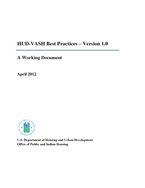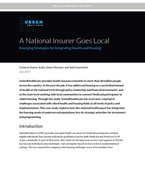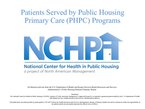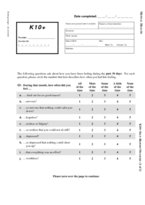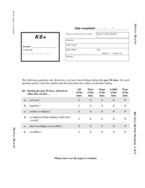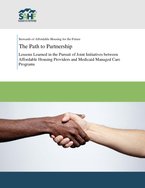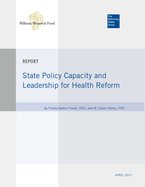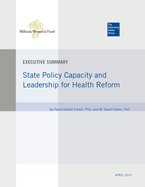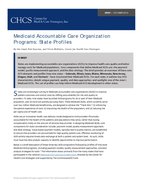0
Report
Community:
Oct 1, 2018
Studies have consistently documented high rates of obesity and tobacco use among individuals with serious mental illness. In recent years, Medicaid programs have enrolled individuals with serious mental illness into managed care plans, which are responsible for ensuring that their members receive preventive care. Despite the movement to managed care, not much is known about whether this population receives routine screening and follow-up care for common comorbid health conditions and health behaviors.
Authored by: Jonathan Brown, Junquing Liu, and Sarah Hudson Scholle for Mathematica
Topics: Disabilities, Health, Low-income, Medicaid / Medicare, Mental health, Preventative care, Research
 Shared by Mica O'Brien
Shared by Mica O'Brien
Mica O'Brien posted a
on Nov 16, 2018
Jonathan Brown, Junquing Liu, and Sarah Hudson Scholle for Mathematica
Studies have consistently documented high rates of obesity and tobacco use among individuals with serious mental illness.
0
Report
Community:
Nov 1, 2018
These 65 million older households are highly diverse in their living situations, financial resources, health and functional abilities, and life stages, and thus require different types of housing to meet their needs and preferences. Affordable, accessible housing located in age-friendly communities and linked to health supports is in particularly short supply. Demand for these units will only increase when the baby boomers start to turn 80 in less than a decade. And whether they own or rent, millions of older households struggle to pay for their housing and other basic necessities, and their numbers are rising. Households now in their 50s to mid-60s are especially at risk of having insufficient resources to manage rising healthcare and housing costs in their later years.
Authored by: Joint Center for Housing Studies of Harvard University
Topics: Health, Housing, Research, Seniors
 Shared by Mica O'Brien
Shared by Mica O'Brien
Mica O'Brien posted a
on Nov 14, 2018
Joint Center for Housing Studies of Harvard University
These 65 million older households are highly diverse in their living situations, financial resources, health and functional abilities, and life stages, and thus require different types of housing to meet their needs and preferences.
0
Interactive
Community:
Nov 5, 2018
Content for this app was developed specifically for middle schoolers and educates them on the principles of a healthy home in a preteen-friendly format. Navigation is simple and intuitive. Interactive features include the Train the Brain and the ability to save a list of items found in their home. Colorful graphics highlight many different hazards that can occur in homes, such as lead, mold and moisture, pests, and more.
Authored by: HUD
Topics: Child welfare, Health, Healthy homes, Housing, Lead, Low-income, Place-based, Safety, Youth
 Shared by Mica O'Brien
Shared by Mica O'Brien
Mica O'Brien posted a
on Nov 5, 2018
Content for this app was developed specifically for middle schoolers and educates them on the principles of a healthy home in a preteen-friendly format. Navigation is simple and intuitive. Interactive features include the Train the Brain and the ability to save a list of items found in their home.
0
Report
Community:
Oct 24, 2018
CLPHA’s Housing Is Initiative is engaged in a number of cross-sector activities focused on developing partnerships, facilitating a community of practice, resource development, promoting best practices, online collaboration, policy and advocacy, and training and education. Read about recent activities in this Fall Update.
Authored by:
Topics: Child welfare, CLPHA, Community development, Cost effectiveness, Data sharing, Early childhood, Education, Family engagement, Funding, Health, Homelessness, Housing, Low-income, Medicaid / Medicare, Mental health, Partnerships, Place-based, Post-secondary, Research, Stability, Substance abuse, Workforce development, Youth
 Shared by Mica O'Brien
Shared by Mica O'Brien
Mica O'Brien posted a
on Oct 24, 2018
CLPHA’s Housing Is Initiative is engaged in a number of cross-sector activities focused on developing partnerships, facilitating a community of practice, resource development, promoting best practices, online collaboration, policy and advocacy, and training and education.
0
Interactive
Community:
Which neighborhoods in America offer children the best chance to rise out of poverty? The Opportunity Atlas answers this question using anonymous data following 20 million Americans from childhood to their mid-30s. Now you can trace the roots of today's affluence and poverty back to the neighborhoods where people grew up. See where and for whom opportunity has been missing, and develop local solutions to help more children rise out of poverty.
Authored by: Census Bureau, Harvard University, and Brown University
Topics: Asset building, Child welfare, Dual-generation, Early childhood, Education, Health, Housing, Low-income, Mobility, Stability, Youth
 Shared by Housing Is
Shared by Housing Is
Housing Is posted a
on Oct 12, 2018
Census Bureau, Harvard University, and Brown University
Which neighborhoods in America offer children the best chance to rise out of poverty? The Opportunity Atlas answers this question using anonymous data following 20 million Americans from childhood to their mid-30s.
0
Interactive
Community:
This initiative is generating innovative ideas that will help us address the affordable housing crisis in America and further support our broad mission to create housing opportunities that are safe, sustainable, and affordable, while managing risk to protect lenders, homeowners, and taxpayers.
Specifically, The Challenge is a $10 million commitment by Fannie Mae to generate affordable housing solutions that will help Fannie Mae address the nation’s affordable housing issues by advancing sustainable communities–those providing residents integrated opportunities for employment, health and wellness, and education.
Authored by: Fannie Mae
Topics: Education, Funding, Health, Housing, Low-income, Workforce development
 Shared by Mica O'Brien
Shared by Mica O'Brien
Mica O'Brien posted a
on Oct 10, 2018
This initiative is generating innovative ideas that will help us address the affordable housing crisis in America and further support our broad mission to create housing opportunities that are safe, sustainable, and affordable, while managing risk to protect lenders, homeowners, and taxpayers.
Sp
0
Report
Community:
Jul 26, 2018
Neighborhoods where insecure housing overlaps with higher rates of emergency department use may be promising areas for interventions under Medicaid value-based payment
Authored by: United Hospital Fund
Topics: East Coast, Health, Housing, Low-income, Medicaid / Medicare, Partnerships, Stability
 Shared by Mica O'Brien
Shared by Mica O'Brien
Mica O'Brien posted a
on Oct 10, 2018
Neighborhoods where insecure housing overlaps with higher rates of emergency department use may be promising areas for interventions under Medicaid value-based payment
0
Report
Community:
Sep 1, 2018
The Roundtable brought together over 70 experts from federal, state, and local government, the private sector, nonprofit organizations, and academia. The objective of the Roundtable was to “explore possibilities and limits of data sharing, and identify successes and proposed solutions for using data to address the opioid crisis.”
Authored by: The Center for Open Data Enterprise
Topics: Data sharing, Health, Partnerships, Substance abuse
 Shared by Mica O'Brien
Shared by Mica O'Brien
Mica O'Brien posted a
on Oct 10, 2018
The Center for Open Data Enterprise
The Roundtable brought together over 70 experts from federal, state, and local government, the private sector, nonprofit organizations, and academia.
0
Report
Community:
Jan 1, 2015
Trauma-Informed Care (TIC) is a holistic approach to providing services, distinct from a clinical treatment model. It has its roots in the Vietnam era, and evolved through the turn of the century, with a particular focus on female survivors of physical and sexual violence.
Authored by: McSilver Institute for Poverty Policy and Research
Topics: Health, Mental health, Partnerships, Stability
 Shared by Mica O'Brien
Shared by Mica O'Brien
Mica O'Brien posted a
on Sep 18, 2018
McSilver Institute for Poverty Policy and Research
Trauma-Informed Care (TIC) is a holistic approach to providing services, distinct from a clinical treatment model. It has its roots in the Vietnam era, and evolved through the turn of the century, with a particular focus on female survivors of physical and sexual violence.
0
Interactive
Community:
Sep 18, 2018
Understanding the characteristics of infants and toddlers in our states and communities is an important first step for supporting children’s development during their most critical years. Making more detailed and comprehensive information available on the young children living in different communities can help stakeholders more strategically develop and target key services such as child care, home visiting, or other services for young children. For example, knowing how many young children live in low-income families and what share have parents working full time can help states and localities tailor child care investments and services to reach those families who most need assistance.
Authored by: Cara Lou and Gina Adams for Urban Institute
Topics: Early childhood, East Coast, Health, Legislation & Policy, Midwest, South, West Coast
 Shared by Mica O'Brien
Shared by Mica O'Brien
Mica O'Brien posted a
on Sep 18, 2018
Cara Lou and Gina Adams for Urban Institute
Understanding the characteristics of infants and toddlers in our states and communities is an important first step for supporting children’s development during their most critical years.
0
Report
Community:
Aug 13, 2018
Maternal depression is a widespread public health concern that has been linked to negative impacts on child development and health outcomes. Within home visiting programs serving low-income women, maternal depression rates have been measured as high as 61 percent. Home visitors are uniquely positioned to help address maternal depression and can play an important role in conducting screenings and providing referrals to community resources. This brief summarizes the existing research to illustrate the importance of addressing maternal depression in home visiting programs, and outlines three promising approaches.
Authored by: Rebecca Peters and Devon Genua for Urban Institute
Topics: Early childhood, Health, Homelessness, Low-income, Mental health
 Shared by Mica O'Brien
Shared by Mica O'Brien
Mica O'Brien posted a
on Sep 18, 2018
Rebecca Peters and Devon Genua for Urban Institute
Maternal depression is a widespread public health concern that has been linked to negative impacts on child development and health outcomes. Within home visiting programs serving low-income women, maternal depression rates have been measured as high as 61 percent.
0
Report
Community:
Aug 9, 2018
In the fall of 2011, a request for the submission of best practices was sent to public housing agencies (PHAs) and VA Medical Centers (VAMCs) that administer the program via the HUDVASH listserv. Over 50 best practices accounts were submitted in response to the request. The practices below have been compiled based on these accounts, which were cross-referenced with monthly data on agency performance and further developed through phone interviews.
Authored by:
Topics: Health, Housing, Partnerships
 Shared by Housing Is
Shared by Housing Is
Housing Is posted a
on Aug 9, 2018
In the fall of 2011, a request for the submission of best practices was sent to public housing agencies (PHAs) and VA Medical Centers (VAMCs) that administer the program via the HUDVASH listserv. Over 50 best practices accounts were submitted in response to the request.
0
Report
Community:
Aug 9, 2018
UnitedHealthcare provides health insurance benefits to more than 40 million people across the country. In the past decade, it has addressed housing as a social determinant of health at the national level through policy leadership and financial investments, and at the state level working with local communities to connect Medicaid participants to stable housing. Through this work, UnitedHealthcare has overcome a myriad of challenges associated with siloed health and housing fields at all levels of policy and implementation. This case study explores how this national health payer has integrated the housing needs of underserved populations into its strategic priorities for investment and programming.
Authored by:
Topics: Affordable Care Act, Data sharing, Funding, Health, Homelessness, Housing, Low-income, Medicaid / Medicare, Partnerships
 Shared by Housing Is
Shared by Housing Is
Housing Is posted a
on Aug 9, 2018
UnitedHealthcare provides health insurance benefits to more than 40 million people across the country.
0
Report
Community:
Aug 9, 2018
Information on PHPC Programs
Authored by:
Topics: Health, Housing, Mental health, Partnerships
 Shared by Housing Is
Shared by Housing Is
Housing Is posted a
on Aug 9, 2018
Information on PHPC Programs
0
Report
Community:
Aug 9, 2018
The Colorado Coalition for the Homeless created the Denver Housing First Collaborative (DHFC) in 2003 with funding provided by a collaboration of federal agencies. The DHFC involved CCH as the lead agency, Denver Department of Human Services (DDHS), Denver Health (DHHA), Arapahoe House, the Mental Health Center of Denver (MHCD) and the Denver VA Medical Center. The DHFC is designed to provide comprehensive housing and supportive services to chronically homeless individuals with disabilities. Initial federal funding created the capacity to house and serve 100 chronically homeless individuals. The program uses a housing first strategy combined with assertive community treatment (ACT) services, providing integrated health, mental health, substance treatment and support services.
Authored by:
Topics: Cost effectiveness, Funding, Health, Homelessness, Housing, Pacific Northwest, Partnerships, Research, Stability, Supportive housing
 Shared by Housing Is
Shared by Housing Is
Housing Is posted a
on Aug 9, 2018
The Colorado Coalition for the Homeless created the Denver Housing First Collaborative (DHFC) in 2003 with funding provided by a collaboration of federal agencies.
0
Interactive
Community:
Aug 9, 2018
Mental health assessment
Authored by:
Topics: Health, Mental health
 Shared by Housing Is
Shared by Housing Is
Housing Is posted a
on Aug 9, 2018
0
Interactive
Community:
Aug 9, 2018
Mental health assessment
Authored by:
Topics: Health, Mental health
 Shared by Housing Is
Shared by Housing Is
Housing Is posted a
on Aug 9, 2018
0
Report
Community:
Aug 9, 2018
Beginning in 2014, with the support of the Kresge Foundation, SAHF engaged its members in efforts to build collaborative relationships with partners from the healthcare sector, in order to implement joint initiatives to demonstrate the contributions of service-enriched housing to the healthcare system. Although many of our members have established work with healthcare stakeholders, few have direct partnerships with insurers. Subsequently, this endeavor focused on collaboration with Medicaid payers. In partnership with Health Management Associates (HMA), target markets and potential Medicaid health plan partners were identified and paired with SAHF members to facilitate conversation and identify points of synergy.
Authored by:
Topics: Health, Housing, Low-income, Partnerships
 Shared by Housing Is
Shared by Housing Is
Housing Is posted a
on Aug 9, 2018
Beginning in 2014, with the support of the Kresge Foundation, SAHF engaged its members in efforts to build collaborative relationships with partners from the healthcare sector, in order to implement joint initiatives to demonstrate the contributions of service-enriched housing to the healthcare syst
0
Report
Community:
Jul 27, 2018
This report aims to provide the Robert Wood Johnson Foundation (RWJF) and other health foundations with a perspective on the emerging intersection of social determinants of health (SDOH), health care systems, and social and other services. These fields intersect in how and what data are collected, and in ways the data are used to improve health and well-being and promote a Culture of Health.
Authored by:
Topics: Data sharing, Funding, Health, Medicaid / Medicare, Metrics, Nutrition, Partnerships, Place-based, Research
 Shared by Housing Is
Shared by Housing Is
Housing Is posted a
on Jul 27, 2018
This report aims to provide the Robert Wood Johnson Foundation (RWJF) and other health foundations with a perspective on the emerging intersection of social determinants of health (SDOH), health care systems, and social and other services.
0
Report
Community:
Jul 23, 2018
The aim of the study was to understand how policy capacity was defined and managed by state health leaders in different political environments during the implementation of the ACA. We conducted a total of 24 interviews, 18 with state executive agency officials and six with legislators from 10 states. The the final sample includes two states from the Northeast, three from the South, three from the Midwest, and two from the West.
Authored by:
Topics: Affordable Care Act, Funding, Health, Legislation & Policy, Low-income, Medicaid / Medicare, Partnerships
 Shared by Housing Is
Shared by Housing Is
Housing Is posted a
on Jul 23, 2018
The aim of the study was to understand how policy capacity was defined and managed by state health leaders in different political environments during the implementation of the ACA.
0
Report
Community:
Jul 23, 2018
The aim of the study was to understand how policy capacity was defined and managed by state health leaders in different political environments during the implementation of the ACA. Working with a sample of states—large and small, red and blue, actively reformist or more circumspect, etc.—the research team interviewed 18 state executive agency officials and six legislators from 10 states about their experiences developing and sustaining the capacity needed for major transformations in health care
Authored by:
Topics: Affordable Care Act, Funding, Health, Legislation & Policy, Low-income, Medicaid / Medicare, Partnerships, Research
 Shared by Housing Is
Shared by Housing Is
Housing Is posted a
on Jul 23, 2018
The aim of the study was to understand how policy capacity was defined and managed by state health leaders in different political environments during the implementation of the ACA.
0
Report
Community:
Jul 23, 2018
States are implementing accountable care organizations (ACOs) to
improve health care quality and better manage costs for Medicaid populations. Core components that define Medicaid ACOs are: the payment model; quality measurement approach; and the data
strategy. This brief provides an overview of these core ACO elements and profiles how nine states -Colorado, Illinois, Iowa, Maine, Minnesota, New Jersey, Oregon, Utah, and Vermont -have structured their Medicaid ACOs. For each state, it outlines key ACO characteristics; details unique payment, quality, and data approaches; and spotlights one of the state’s Medicaid ACOs. This set of profiles can help inform Medicaid ACO development in other states.
Authored by:
Topics: Cost effectiveness, Data sharing, Health, Low-income, Medicaid / Medicare, Metrics
 Shared by Housing Is
Shared by Housing Is
Housing Is posted a
on Jul 23, 2018
States are implementing accountable care organizations (ACOs) to
improve health care quality and better manage costs for Medicaid populations. Core components that define Medicaid ACOs are: the payment model; quality measurement approach; and the data
strategy. This brief provides an overview of
0
Interactive
Community:
Jul 20, 2018
Kaiser Permanente NW Community Benefit intends to award at least $1.5 million in community grants to support organizations that help people with behavioral health challenges to secure and maintain safe, stable housing. A minimum of five grants of up to $325,000 will be awarded for projects lasting 3 ½ years. Projects must include the involvement of peers or community health workers (CHWs) and must involve collaboration between housing providers, health care providers (including behavioral health service providers) and those community organizations employing peers or CHWs.
Authored by:
Topics: Funding, Health, Homelessness, Housing, Mental health, Pacific Northwest, Partnerships, Place-based, Preventative care, Substance abuse
 Shared by Housing Is
Shared by Housing Is
Housing Is posted a
on Jul 20, 2018
Kaiser Permanente NW Community Benefit intends to award at least $1.5 million in community grants to support organizations that help people with behavioral health challenges to secure and maintain safe, stable housing.
0
Report
Community:
Jul 20, 2018
This issue brief outlines ways in which Medicaid can support integrated strategies and, based on telephone interviews with key informants, profiles three current initiatives that illustrate distinctly different approaches to linking Medicaid and supportive housing. The three initiatives include one launched by a city (Philadelphia), one by a state (Louisiana), and one by a Medicaid MCO (Mercy Maricopa Integrated Care in Phoenix, Arizona). They target special populations including homeless individuals, people with a wide range of disabilities, and adults with mental health and/or substance use problems.
Authored by:
Topics: Cost effectiveness, Health, Homelessness, Housing, Low-income, Medicaid / Medicare, Supportive housing
 Shared by Housing Is
Shared by Housing Is
Housing Is posted a
on Jul 20, 2018
This issue brief outlines ways in which Medicaid can support integrated strategies and, based on telephone interviews with key informants, profiles three current initiatives that illustrate distinctly different approaches to linking Medicaid and supportive housing.
0
Interactive
Community:
Jul 19, 2018
The Building Healthy Neighborhoods series explores the crucial elements to build a culture of health, education and economic mobility in lower-income communities.
Authored by:
Topics: Community development, Health, Housing
 Shared by Housing Is
Shared by Housing Is
Housing Is posted a
on Jul 19, 2018
The Building Healthy Neighborhoods series explores the crucial elements to build a culture of health, education and economic mobility in lower-income communities.


 Shared by Housing Is
on Oct 12, 2018
Shared by Housing Is
on Oct 12, 2018
 Shared by Housing Is
on Aug 9, 2018
Shared by Housing Is
on Aug 9, 2018
 Shared by Housing Is
on Aug 9, 2018
Shared by Housing Is
on Aug 9, 2018
 Shared by Housing Is
on Aug 9, 2018
Shared by Housing Is
on Aug 9, 2018
 Shared by Housing Is
on Aug 9, 2018
Shared by Housing Is
on Aug 9, 2018
 Shared by Housing Is
on Aug 9, 2018
Shared by Housing Is
on Aug 9, 2018
 Shared by Housing Is
on Aug 9, 2018
Shared by Housing Is
on Aug 9, 2018
 Shared by Housing Is
on Aug 9, 2018
Shared by Housing Is
on Aug 9, 2018
 Shared by Housing Is
on Jul 27, 2018
Shared by Housing Is
on Jul 27, 2018
 Shared by Housing Is
on Jul 23, 2018
Shared by Housing Is
on Jul 23, 2018
 Shared by Housing Is
on Jul 23, 2018
Shared by Housing Is
on Jul 23, 2018
 Shared by Housing Is
on Jul 23, 2018
Shared by Housing Is
on Jul 23, 2018
 Shared by Housing Is
on Jul 20, 2018
Shared by Housing Is
on Jul 20, 2018
 Shared by Housing Is
on Jul 20, 2018
Shared by Housing Is
on Jul 20, 2018
 Shared by Housing Is
on Jul 19, 2018
Shared by Housing Is
on Jul 19, 2018





